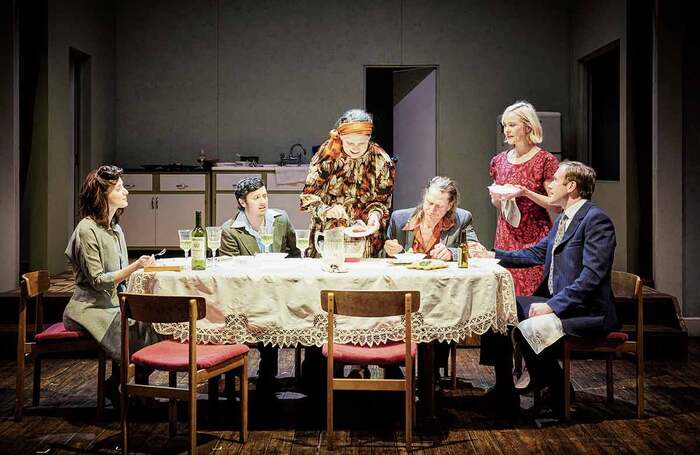
The Stage
4 stars out of 5
“Engrossing”
Alexander Zeldin’s exploration of one woman’s life over decades is engrossing
With his Inequalities Trilogy, Alexander Zeldin documented the reality of life in care homes and factories in an almost hyper-realistic way. In his new production – which had its world premiere at Vienna’s Festwochen ahead of an international tour, and arrives at the National Theatre this October – he documents one woman’s life over decades, from the mid-20th century to the present.
The piece was inspired by conversations that Zeldin had with his mother during lockdown. Australian actor Eryn Jean Norvill plays Alice, whom we first meet as a teenager at a school dance in Australia in the 1950s. When she fails to get into university, her mother pressures her to marry and, later, her stuffy husband pressures her into not continuing with her education. Her wants are secondary. But Alice learns to resist – she refuses to have a baby just because her husband has decided the time is right. Eventually, they separate, and she moves in with a group of friends, including a prominent feminist (Pamela Rabe), and she embarks on an open relationship with a poetry professor (Jerry Killick).
The production charts Alice’s process of self-discovery and emancipation, the moments that shaped her. As a director, Zeldin has often used silence and near-stillness to strong effect, and that’s the case here, in a scene in which Alice is – it’s implied, though not shown – violated by a man. The way she regains her sense of control is one of the more powerful scenes, even if it feels somehow less real than other moments. That feels related to an argument Alice has with her childhood friend about an incident from school that they both remember differently. We all have our own truths.
Marg Horwell’s set consists of a stage-within-a-stage, framed by burgundy curtains and lit from above by Paule Constable with functional, municipal strip lights. Alice’s kitchen sometimes sits within this smaller stage. Zeldin’s often overlapping dialogue has an Altman-esque quality, full of awkwardness and pauses, while Yannis Philippakis’ music combines moments of seat-shaking bass with something more euphoric.
Time passes more quickly in the second half, when Alice, having relocated to London in her 40s, meets Jacob, the man with whom she will start a family. The play spends less time exploring their relationship (perhaps as this is where the narrative starts to overlap with the director’s own memories), until Jacob’s death from a degenerative illness, which is very movingly and sensitively depicted.
The ensemble cast is strong, with Norvill superb throughout, while Amelda Brown is a smiling, mostly silent presence, observing, remembering – the woman Alice will one day become. I felt I wanted more of this and of her.
This is clearly a very personal show, but also an ambitious one in the way it attempts to present the tapestry of choices, regrets and triumphs that make up a life, the backdrop of societal change, the texture of memory.